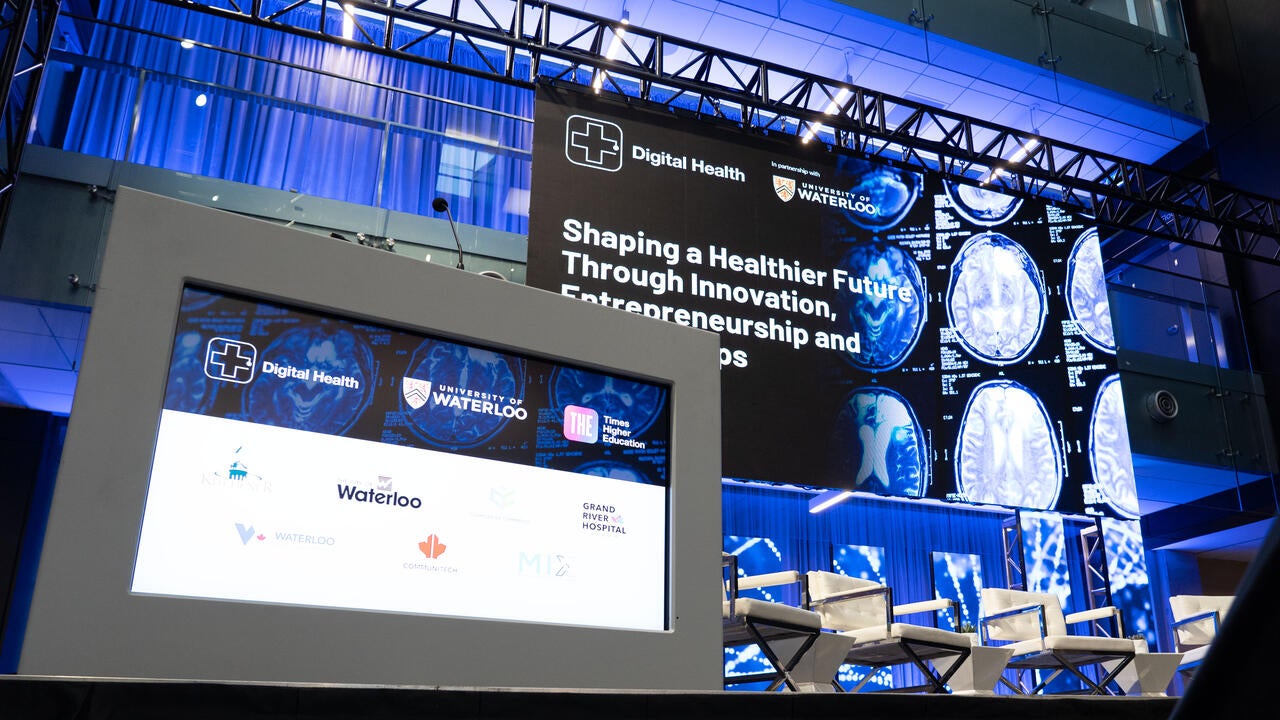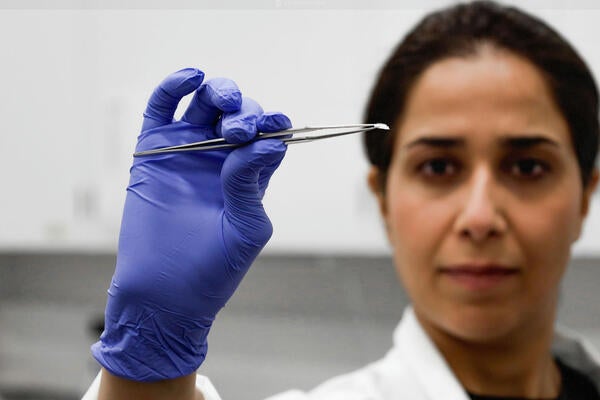
Shaping the future of health through innovation and entrepreneurship
Waterloo hosts more than 200 global leaders at the Times Higher Education Digital Health 2025 summit

Waterloo hosts more than 200 global leaders at the Times Higher Education Digital Health 2025 summit
By University RelationsThe rapid evolution of digital health holds immense potential to transform patient care and improve global health outcomes. Building disruptive technologies is at the core of what we do, and since our inception, the University of Waterloo has been harnessing our expertise in health, technology and entrepreneurship and collaborating with partners to commercialize health-care solutions for real-world impact.
This week, Waterloo expands its partner network to host the Times Higher Education (THE) Digital Health 2025 summit. Welcoming more than 200 leaders from health care, academia, government and startups, the summit brings together a global community to help shape a healthier future through innovation, entrepreneurship and partnerships.
“Digital health innovations often fail because they don’t meet the needs of patients and front-line health providers,” said Vivek Goel, president and vice-chancellor of the University of Waterloo in his welcoming remarks. “We need to design technologies to meet society’s needs ... [and] look to work with partners across the sector to create solutions that advance population health and support the development of more sustainable communities.”

The two-day summit includes an impressive line-up of health experts including speakers from global organizations such as Pfizer, Samsung Health and the World Health Organization, and from local and Canadian organizations such as the Trillium Health Partners and the Care Next Coalition that is leading the partnership for the new hospital that will be located at the University of Waterloo.
What makes this summit truly collaborative and action-focused is the inclusion of health-tech founders and researchers who are building the digital technologies alongside policymakers and health-care providers to implement the digital solutions needed for the future of health care.
The summit spotlights some of the remarkable tech companies that have spun out of Waterloo research including Fluid AI, a Velocity venture developing an AI-driven system to monitor post-operative complications, and Foqus Technologies, a quantum software company that reduces the scan time of MRIs to just five minutes.
The first day of the summit also includes a Velocity Pitch Showcase to share some of the exciting startups looking to transform health care delivery and improve patient outcomes. The summit will run from April 10 to 11, with a focus on networking to strengthen partnerships and learn about the innovations happening here in Waterloo. When the tech community works closely with hospitals, researchers, and health-care providers — listening and adapting to their needs — health innovation leads the way.
Keynote sponsor | McKesson
Content sponsors | EY and Accenture
Ecosystem sponsors | MIX, City of Waterloo, City of Kitchener, Waterloo EDC, Grand River Hospital Foundation, Kitchener Waterloo Chamber of Commerce and Communitech
In an effort to improve emergency department flow and transform patient care, the Waterloo Regional Health Network is partnering with the University of Waterloo to launch the Innovation Challenge: Reducing emergency room wait times.

Read more
Waterloo researchers are closer to commercializing a health care breakthrough for continuous monitoring of blood glucose, ketone, lactate and more

Read more
Foqus Technologies leverages quantum technology and artificial intelligence to enhance medical imaging and reduce wait time for patients and health-care providers

Read more
The University of Waterloo has a remarkable portfolio of startups and research solving health care’s most pressing challenges
The University of Waterloo acknowledges that much of our work takes place on the traditional territory of the Neutral, Anishinaabeg, and Haudenosaunee peoples. Our main campus is situated on the Haldimand Tract, the land granted to the Six Nations that includes six miles on each side of the Grand River. Our active work toward reconciliation takes place across our campuses through research, learning, teaching, and community building, and is co-ordinated within the Office of Indigenous Relations.